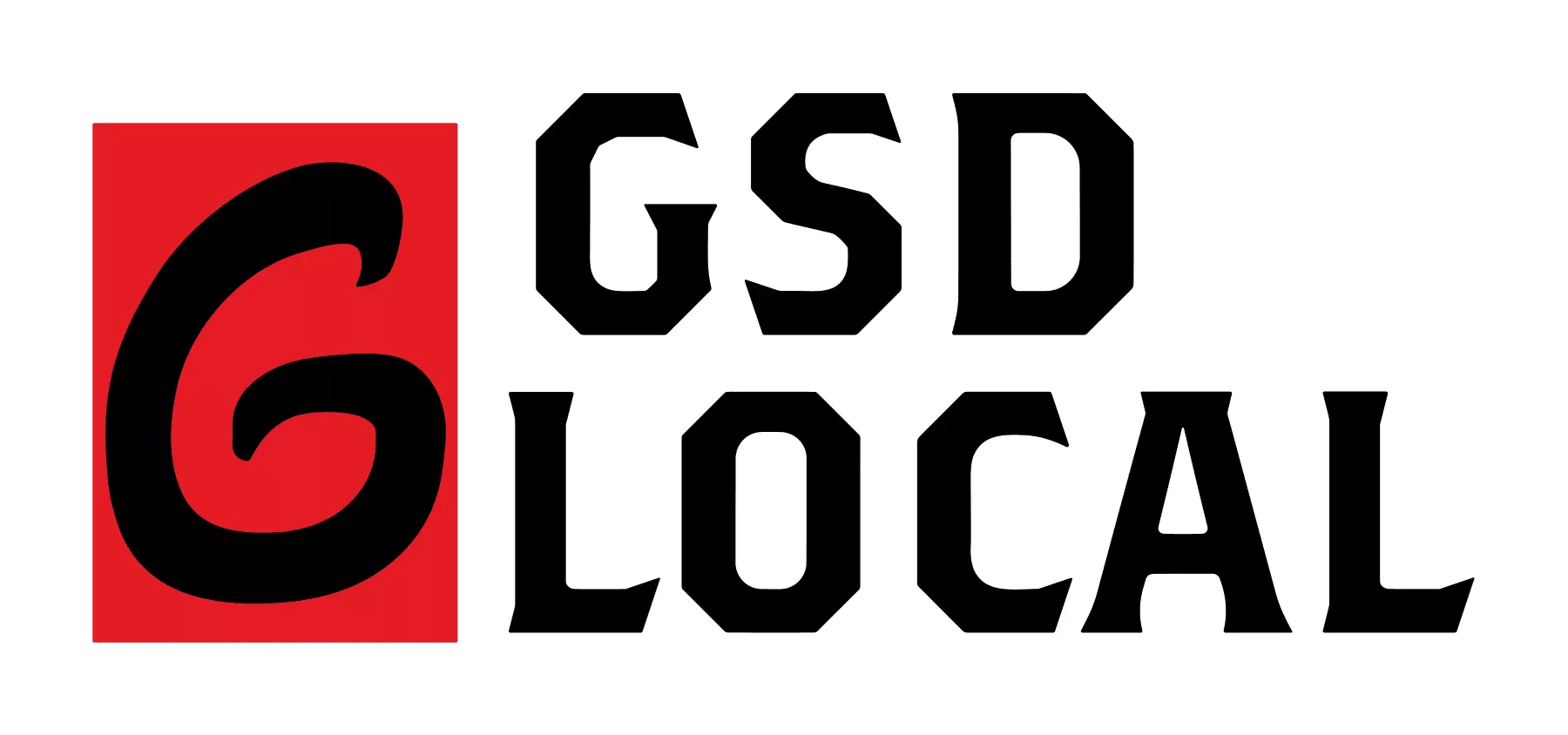STOP LOSING LISTINGS TO AI...
The Real Estate Agent's Guide to Appearing in Claude, ChatGPT, and Perplexity Searches
Stop Chasing Leads-Let AI Send Them to You

You post listings on Instagram.
You run Facebook ads.
You pay for Zillow leads.
But when someone asks ChatGPT "Who's a great real estate agent near me?" - your name doesn't come up.
A competitor's does.
Maybe they're newer. Maybe they haven't closed as many deals. Maybe their Instagram has fewer followers.
But AI recommends them.
And those AI recommendations are turning into real business.
Meanwhile, you're still chasing cold leads and hoping for referrals.
Here's the truth: The way people find real estate agents changed in 2024.
And most agents missed it completely.
The New Reality of Agent Discovery
Think about how your last few clients found you.
Referral? Great. But referrals are limited. You can only get so many.
Zillow lead? Expensive. And you're competing with 4 other agents for the same contact.
Social media DM? Rare. Most people who like your posts never reach out.
Now think about this: What happens when a potential buyer or seller asks an AI assistant for recommendations?
"I'm moving to Phoenix. Who's a good realtor in Scottsdale?"
"We need to sell our house fast. Best agent for quick sales in our area?"
"Looking for a buyer's agent who specializes in first-time buyers. Recommendations?"
ChatGPT gives an answer. Claude gives an answer. Perplexity gives an answer.
If your name isn't in those answers, you don't exist to that prospect.
No second chance. No "I'll keep you in mind." Just... invisible.
And here's what makes this brutal: Your competitor who figured this out is getting those leads for free.
Zero ad spend. Zero lead fees. Zero competition.
Just warm prospects asking, "Are you available for a consultation?"
Why AI Chooses Certain Agents (And Ignores Others)
AI systems aren't magic. They're not biased. They're just following patterns.
Patterns that determine who's credible and who's not.
Your competitor matches those patterns. You don't.
Let me show you exactly what AI is looking for.
Pattern #1: Active Digital Presence
AI scans the internet for activity.
It asks: "Is this agent actually working right now?"
If your last Instagram post was three months ago and your website blog hasn't been touched since 2022, AI sees dormancy.
Inactive agents don't get recommended.
Your competitor? They post 3-5 times per week.
Quick market updates. Home tips. Client wins. Local insights.
AI sees consistent activity and thinks: "This person is engaged, current, and available."
Activity = Availability in AI's eyes.
Pattern #2: Structured Business Data
Your website says "Top Agent in Phoenix Since 2015!"
Great. But AI doesn't read websites like humans do.
AI reads structured data. Schema markup. JSON-LD code that says:
Name: Sarah Johnson
Job Title: Real Estate Agent
Brokerage: Keller Williams Realty
Service Area: Scottsdale, Paradise Valley, Phoenix
Specialty: Luxury Homes, First-Time Buyers
Reviews: 4.9 stars, 47 reviews
Without schema, your website is just text. Noise. Unstructured information AI can't easily process.
Your competitor added schema. AI knows EXACTLY who they are, what they do, and where they serve.
You're invisible because you're not speaking AI's language.
Pattern #3: Client Validation Signals
AI doesn't trust what you say about yourself.
It trusts what others say about you.
Reviews. Testimonials. Social proof.
Five 5-star Google reviews from 2021? That's old news.
Forty-two reviews with the most recent one posted last week? That's current trust.
AI sees:
Volume (lots of people vouch for you)
Recency (people STILL vouch for you)
Consistency (the quality is steady)
Your competitor has been systematically collecting reviews. Every closing. Every happy client.
You? Maybe you ask sometimes. But not consistently.
Review momentum = trust momentum.
Pattern #4: Expertise Demonstration
AI looks for proof that you actually know your market.
Blog posts. Videos. Articles. Market reports.
It's asking: "Does this agent understand their area deeply?"
One blog post about "Spring Buying Season Tips" doesn't cut it.
Your competitor has 30+ pieces of content answering every buyer and seller question:
"What's the average home price in Scottsdale?"
"How long does it take to sell a house in Phoenix?"
"Best neighborhoods for families with kids"
"What to know about buying a home with a pool in Arizona"
"How to prep your home for sale in a hot market"
AI sees depth. Knowledge. Someone who's thought through every scenario.
Content library = knowledge proof.
Pattern #5: Video Credibility
Here's what separates good from great in AI's eyes: Video content.
Why? Because video signals confidence and authenticity.
Anyone can write "I'm the best agent." Not everyone will get on camera and prove it.
Your competitor has 50+ short videos:
Neighborhood tours
Market updates
Buyer tips
Seller advice
Q&A sessions
Real face. Real voice. Real expertise.
AI interprets this as: "This person is confident enough to be visible. They're legitimate."
Video = authenticity signal.

The Platform Breakdown: Where AI Recommendations Happen
Let's talk about the three major AI platforms changing how people find agents.
ChatGPT
Most conversational. People ask questions like they're talking to a friend.
"I'm thinking about buying my first home. Who's good to work with?"
ChatGPT scans for agents with:
Strong content presence (blog posts, videos)
Clear expertise signals
Recent activity
Good reviews
It tends to recommend agents who teach through content.
Claude
More analytical. People ask deeper questions.
"What should I look for in a real estate agent in a competitive market?"
Claude looks for:
Structured data (schema markup is huge here)
Detailed expertise demonstration
Professional credibility signals
Third-party validation
It favors agents who appear professional and data-backed.
Perplexity
Research-focused. People are comparing options.
"Best real estate agents in Scottsdale with experience in luxury homes"
Perplexity emphasizes:
Specialization clarity
Review aggregation
Recent mentions in articles/directories
Active web presence
It's like Google but with AI curation.
The good news? The same optimization strategy works across all three.
Build the right signals, and you appear everywhere.
What This Actually Looks Like in Practice
Let me show you a real scenario.
Prospect: Moving to Austin. Asks ChatGPT: "Who's a good buyer's agent in Austin for first-time buyers?"
ChatGPT scans:
Agents with "Austin" + "buyer's agent" + "first-time buyers" in structured data
Agents with content answering first-time buyer questions
Agents with recent reviews mentioning buyer representation
Agents with active presence (posts from this month)
Result: ChatGPT says: "I'd recommend Sarah Martinez at Realty Austin. She specializes in first-time buyers and has excellent reviews."
Sarah gets an inbound call. Zero ad spend. Pre-sold prospect.
You? You didn't show up. Because AI didn't have enough trust signals to confidently recommend you.
That's how it works. Every single day. Across thousands of searches.
The Compounding Effect of AI Visibility
Here's where it gets powerful.
One trust signal alone won't beat your competitor.
But when you stack them? They multiply.
Your competitor has:
✅ Posts 4X per week (active presence)
✅ Schema markup on website (AI-readable)
✅ 47 recent reviews (validated trust)
✅ 35 helpful articles (demonstrated expertise)
✅ Featured in local news (third-party credibility)
✅ 60+ educational videos (authentic authority)
You have:
❌ Posts occasionally
❌ No schema markup
❌ 8 old reviews
❌ No blog content
❌ No media mentions
❌ No video presence
AI doesn't see you as 6X worse.
It sees you as not credible enough to recommend.
That's the difference between being chosen and being ignored.
Why Your Social Media Following Doesn't Matter
You might be thinking: "But I have 3,000 followers on Instagram!"
That's great for brand awareness.
But when someone asks AI for a recommendation, your follower count doesn't help.
AI doesn't see your Instagram followers. It sees:
Your website content
Your review platforms
Your structured data
Your public content (YouTube, LinkedIn, blogs)
Social media creates awareness. AI visibility creates business.
Your competitor might have fewer followers but better AI signals.
Guess who gets the inbound leads?

The Good News (Yes, There Is Good News)
You're behind. That's the bad news.
Your competitor has been building these signals for months. They have momentum.
But here's the good news: You can catch up faster than you think.
AI visibility compounds. But it also builds quickly when done right.
Start today, and in 60-90 days you can be competitive.
In 6 months you can dominate your market.
The question is: Will you start? Or will you keep watching competitors win?
Your 90-Day AI Visibility Roadmap
This isn't complicated. It's just consistent.
Here's your action plan:
Week 1-2: Foundation Setup
Day 1-3:
Add schema markup to your website (hire a developer if needed)
Claim/optimize Google Business Profile
Audit your current online presence (Google yourself)
Day 4-7: 4. Set up a review collection system (after every closing) 5. Create profiles on Zillow, Realtor.com, Yelp (fill completely) 6. Update all social media bios with consistent info
Week 2: 7. Take 20 professional photos (headshots + local scenes) 8. Write your compelling agent bio (300 words) 9. List your specialties clearly (first-time buyers, luxury, etc.)
Week 3-6: Content Creation Sprint
Blog Content (Write 8-10 articles):
"First-Time Buyer Guide to [Your City]"
"How Long Does It Take to Sell a House in [Your Area]?"
"Best Neighborhoods in [Your City] for Families"
"What to Know Before Buying a Home With a Pool"
"[Your City] Real Estate Market Update [Current Month]"
Video Content (Record 15-20 short videos - 60-90 seconds each):
Quick neighborhood highlights
Market update this month
"3 Things First-Time Buyers Should Know"
"Biggest Mistake Sellers Make"
Common buyer questions answered
Post consistently:
Instagram: 3-4X per week
LinkedIn: 2-3X per week
Facebook: 2-3X per week
Week 7-10: Amplification
Get listed in every relevant directory (focus on local)
Reach out to local media for market expert quotes
Join and participate in community Facebook groups
Connect with lenders, inspectors, title companies (cross-promotion)
Week 11-12: Optimization
Review what's working (which content gets engagement?)
Ask for reviews from last 10 transactions
Double down on content formats that perform
Schedule Q1 content in advance
Do this for 90 days and you'll start appearing in AI recommendations.
Stop for even two weeks and you fall behind again.
The Real Reason Your Competitor Wins
It's not because they're a better agent.
It's not because they close more deals.
It's not because they have better marketing.
It's because they're consistent.
They show up. Every day. Every week.
They create content. They collect reviews. They stay active.
While you're "too busy" with showings, they're building the system that BRINGS them showings.
While you're buying Zillow leads, they're being recommended by AI for free.
While you're hoping your website works, they're making sure AI can actually read it.
That's the difference.
The Choice in Front of You
You can keep doing what you're doing.
Keep paying for leads. Keep hoping for referrals. Keep posting occasionally and wondering why it's not working.
Or you can adapt.
You can start building the signals AI looks for.
You can create content that demonstrates expertise.
You can become visible in the places where people are actually searching.
Your competitor made their choice months ago.
That's why AI recommends them.
What will you choose?
Stop Competing on Price. Start Competing on Visibility.
Look, I get it.
You became an agent to help people buy and sell homes. Not to become a content creator.
You didn't get your license to film videos and write blog posts.
You want to do the deals. Serve clients. Make the commission.
But here's the reality in 2025: If people can't find you, they can't hire you.
And "finding you" now means being recommended by AI.
The agents who figured this out early? They're crushing it.
The ones who ignored it? They're still fighting for scraps on Zillow.
You get to decide which group you're in.
Ready to become the agent AI recommends first?
📞 Schedule a free 15-minute Authority Audit and we'll show you exactly where your AI visibility gaps are — and how to fix them fast.
Because in 2025, invisible agents don't get listings.
Visible ones do. Contact me.
Frequently Asked Questions
Do AI tools like ChatGPT actually recommend specific real estate agents?
Yes, absolutely. When people ask AI assistants "Who's a good real estate agent in [city]?" or "Can you recommend a buyer's agent?" - the AI provides specific names based on available data. ChatGPT, Claude, and Perplexity scan the web for agents with strong trust signals: consistent content, good reviews, schema markup, and demonstrated expertise. The agents with the strongest combination of these signals get recommended. This is happening thousands of times daily, and most agents have no idea they're missing out on these warm, inbound leads
What makes an agent "recommendable" to AI systems?
AI systems determine recommendability through six key signals: (1) Active online presence with regular content posting, (2) Structured data (schema markup) that makes your business information AI-readable, (3) Recent client reviews showing current satisfaction, (4) Content library demonstrating market expertise, (5) Third-party validation through directory listings and media mentions, and (6) Video content showing authentic expertise. Agents with 4-6 of these signals get recommended consistently. Agents with 0-2 signals stay invisible. It's not about being the best agent-it's about being the most verifiable agent.
How can I track whether I'm showing up in AI search results?
The simplest method is manual testing: Ask ChatGPT, Claude, and Perplexity questions like "Who's a good real estate agent in [your city]?" or "Best agent for [your specialty] in [your area]?" See if your name appears. For more systematic tracking, use tools like Brand24 or Mention to monitor when your name appears in AI-generated content. Check Google Search Console for queries like "AI recommend realtor [city]" to see if people are clicking through from AI-generated content. Most importantly, ask new leads "How did you find me?" If they mention ChatGPT or AI, you know your visibility is working.
Should I focus on ChatGPT or Google's AI Overviews first?
Focus on both simultaneously because the optimization strategies overlap significantly. However, if you must prioritize: Start with Google AI Overviews since Google still drives the majority of real estate searches. Add schema markup to your website, optimize your Google Business Profile, and create helpful content answering common buyer/seller questions. These same actions will improve your ChatGPT and Claude visibility. The key difference: Google AI Overviews favor structured data more heavily, while ChatGPT emphasizes conversational content. Do both and you dominate everywhere.
Does video content help with AI visibility?
Significantly. Video content serves as a powerful trust signal that AI systems recognize and prioritize. When AI analyzes your online presence, video indicates: (1) Confidence and authenticity (you're willing to show your face), (2) Deeper expertise (video requires more effort than text), and (3) Engagement commitment (video content typically gets more interaction). Agents with 20+ short educational videos dramatically outperform those with text-only content. The videos don't need to be professionally produced-smartphone videos answering common questions work excellently. Focus on neighborhood tours, market updates, and FAQ-style content.
How can realtors create enough consistent content to stay visible in AI search without it becoming a full-time job?
This is the biggest challenge agents face-and exactly why systems matter more than effort. The most efficient approach is content multiplication: capture your expertise once, repurpose it everywhere. That's what ClipCred does for real estate professionals. We conduct one focused interview session where you share your market knowledge, buyer/seller insights, and expertise. We transform that single conversation into 30 days of daily content: short-form videos, social media posts, blog articles, and AI-optimized assets. You invest one hour monthly. We handle filming, editing, posting, and optimization. You stay focused on clients while your AI visibility builds automatically. It's how top-producing agents maintain consistent presence without content creation becoming a second career.
Can I appear in AI recommendations if I'm in a competitive market?
Absolutely-in fact, competitive markets often create MORE opportunity for AI visibility. Here's why: Most agents in competitive markets are still fighting the old battle (paid ads, lead gen platforms, traditional SEO). Very few have optimized for AI recommendations. This creates a massive gap. In markets like Phoenix, Austin, or Miami with thousands of agents, only 20-30 might have strong AI visibility signals. Start building those signals now and you can dominate before competitors realize the game changed. Competitive markets actually favor early adopters because there's more search volume but relatively few AI-optimized agents capturing it.

